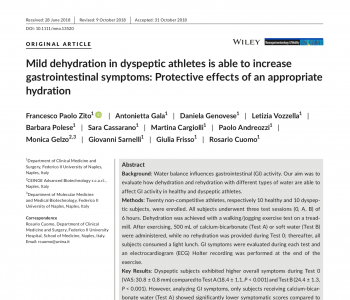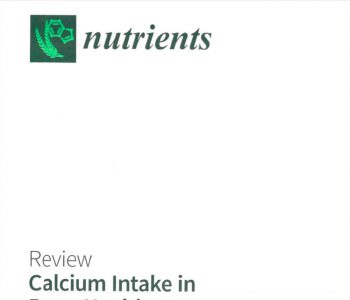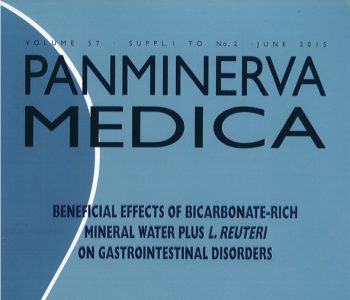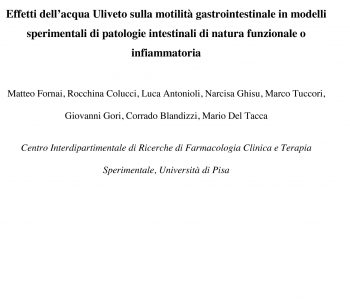Objective The effects of carbonated beverages on the gastrointestinal tract have been poorly investigated. Therefore, this study aims to assess the effect of carbonated water intake in patients with functional dyspepsia and constipation. Methods Twenty-one patients with dyspepsia and secondary constipation were randomized into two groups in a double-blind fashion. One group (1O subjects) drank carbonated water and the other (11 subjects) tap water for almost 15 days. Patients were evaluated tor dyspepsia and constipation scores, and underwent a satiety test by a liquid meal, radionuclide gastric emptying, sonographic gallbladder emptying and colonic transit time, using radioopaque markers. Results The dyspepsia score was significantly reduced with carbonated water (before = 7.9 ± 2.8 vs after = 5.4 ± 1.7; P< 0.05) and remained unmodified after tap water (9.7 ± 5.3 vs 9.9 ± 4.0). The constipation score also decreased significantly (P < 0.05) after carbonated water (16.0 ± 3.9 vs 12.1 ± 4.4; P< 0.05) and was not significantly different with tap water (14.7 ± 5.1 vs 13.7 ± 4.7). Satiety was significantly reduced with carbonated water (before = 44 7 ± 146 kcal vs after = 590 ± 245; P < 0.01 ). Gallbladder emptying (delta percent contraction) was significantly improved only with carbonated water (39.9 ± 16.10/o vs 53.6 ± 16.70/o; P<0.01). Conclusion In patients complaining of functional dyspepsia and constipation, carbonated water decreases satiety and improves dyspepsia, constipation and gallbladder emptying. Eur J Gastroenterol Hepatol 14: 991 -999 2002 Lippincott Williams & Wilkins
Università degli Studu “Federico II” di Napoli – Dipartimento di Medicina Clinica – Gastroenterologia 2 –
Dir. Prof. Budillon – 2002







